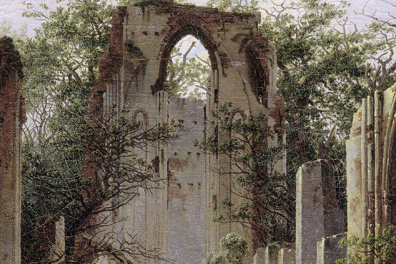International symposium "The Seventies in the USSR", May 17-19: a cultural renaissance?

Event organized by the Centre de Recherches Europe-Eurasie - CREE (Inalco) and the Institut de recherches philosophiques de Lyon - IRPhiL (Université Jean Moulin - Lyon 3).
From Tuesday May 17 to Thursday May 19, 2022 - Maison de la recherche (Paris 7e) - Auditorium Dumézil / and online
Inalco - 2, rue de Lille - 75007 Paris
Practical information:
Tuesday May 17: 10:00-17:30
Wednesday May 18: 10:00-16:30
Thursday May 19: 10:00-12:30
The seventies in the USSR: a cultural renaissance?
Colloquium languages: French, English and Russian
The USSR of the "Brezhnev era" was undergoing profound social (urbanization, advent of consumer society) and cultural (spread of a certain "non-conformism") changes. The poet Olga Sedakova, a key witness to this period, even describes it as a "renaissance", with the emergence of a figure and an ideal of the intellectual, the bearer of universalist erudition and a humanist spirit that distances itself from official ideology. The colloquium aims to systematically explore the relevance and limits of this concept of "renaissance" as a project of self-transformation and cultural transformation in a chronological framework between 1968 and Perestroika.
Symptomatic of this need is the renewed interest in the Renaissance period from a historical, philosophical and artistic point of view. Fueled no doubt by the dissemination of Mikhail Bakhtine's theses on Rabelais (though conceived in the 30s), for whom the Renaissance stands as a period of creativity and individual freedom in the face of official dogmatism, the 70s were in fact characterized by a veritable explosion in the number of monographs devoted to the Renaissance, The most striking of these was Alexei Losev's The Aesthetics of the Renaissance (1978), which sparked lively discussions on issues such as humanism, man's creative omnipotence and its limits, reflecting a more widespread malaise - that of the individual cut off from his roots. Discussions around Renaissance are thus linked to the emergence of an alternative path of self-transformation at odds with the Soviet project of the "new man".
Almost half a century on, the decompartmentalization and openness inaugurated by this era remain more relevant than ever today. The colloquium is open to those who took part in and witnessed this period, as well as to researchers interested in the issues raised, including young researchers.
By virtue of its trans-disciplinary and trans-cultural theme, the colloquium is in line with IRPhiL's focus on the circulation of ideas.